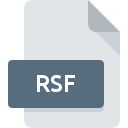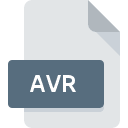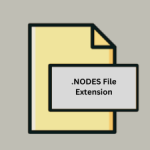.RSF File Extension

LEGO MINDSTORMS EV3 Robot Sound File
| Developer | The LEGO Group |
| Popularity | |
| Category | Audio Files |
| Format | .RSF |
| Cross Platform | Update Soon |
What is an RSF file?
RSF files, or Robot Sound Files, are audio files specifically designed for compatibility with the LEGO MINDSTORMS EV3 platform.
These files contain sound data that can be utilized within EV3 projects to add auditory feedback or enhance the interactive experience of robots created using the platform.
From simple beeps to complex sound effects, RSF files offer a versatile means of communication and expression in the realm of robotics.
More Information.
Upon the launch of LEGO MINDSTORMS EV3, the integration of sound was recognized as a crucial feature for enhancing user experiences.
The .RSF file extension was introduced to facilitate the incorporation of audio elements into robot projects. Initially, these files were primarily utilized for basic auditory cues, such as indicating completion of tasks or alerting users to specific conditions within the robot’s environment.
As the platform evolved, so did the complexity and diversity of sound files, enabling developers to create more immersive and interactive robotic experiences.
Origin Of This File.
The .RSF file extension finds its origins within the LEGO Group, the renowned Danish toy manufacturer responsible for the MINDSTORMS series. With the release of the EV3 platform, LEGO aimed to provide users with a comprehensive toolkit for robotics education and exploration.
The inclusion of sound capabilities through the RSF file format expanded the possibilities for creating engaging and interactive robotic systems.
File Structure Technical Specification.
RSF files follow a specific structure optimized for compatibility with the LEGO MINDSTORMS EV3 platform. Typically, these files contain digitized audio data encoded in a format supported by the EV3 hardware and software.
The technical specifications may vary based on factors such as audio quality, file size, and playback capabilities. Common formats utilized within RSF files include WAV and MP3, providing flexibility in terms of audio compression and quality.
How to Convert the File?
Converting .RSF files to other audio formats may be necessary for various reasons, such as editing, sharing, or using the sound files in different applications.
Since .RSF is a proprietary format specific to the LEGO MINDSTORMS EV3 platform, direct conversion tools for .RSF files may not be readily available. There are alternative methods to achieve the conversion:
Export from LEGO MINDSTORMS EV3 Software:
- Open the LEGO MINDSTORMS EV3 software on your computer.
- Load the project containing the .RSF file you wish to convert.
- Locate the sound file within the project.
- Export the sound file from the software in a compatible format, such as WAV or MP3.
- Save the exported file to your desired location on your computer.
Use Audio Conversion Software:
- Once you have exported the .RSF file from the LEGO MINDSTORMS EV3 software, use audio conversion software to further process the file.
- Open the audio conversion software on your computer.
- Import the exported sound file into the conversion software.
- Choose the desired output format for the converted file (e.g., WAV, MP3, AIFF, etc.).
- Initiate the conversion process.
- Save the converted file to your preferred location on your computer.
Record Playback:
- If you do not have access to the LEGO MINDSTORMS EV3 software, you can record the playback of the .RSF file using audio recording software.
- Connect the EV3 hardware containing the .RSF file to your computer.
- Play the .RSF file on the EV3 hardware.
- Use audio recording software on your computer to capture the playback in real-time.
- Save the recorded audio as a new file in a compatible format.
Online Conversion Tools:
- There may be online conversion tools or services available that claim to support .RSF files. However, exercise caution when using these services, as they may not always provide reliable results or adequately protect your data privacy.
Advantages And Disadvantages.
One of the primary advantages of RSF files is their seamless integration with the LEGO MINDSTORMS EV3 ecosystem.
They enable users to add rich audio feedback to their robot projects, enhancing engagement and functionality.
Additionally, RSF files are relatively easy to create and manipulate, allowing users to customize sound effects according to their preferences.
One potential drawback of RSF files is their reliance on proprietary hardware and software. While they are compatible with the LEGO MINDSTORMS EV3 platform, they may not be easily transferable to other robotics systems or platforms.
This limitation could restrict the portability of projects utilizing RSF files, especially in educational or collaborative settings involving diverse hardware environments.
How to Open RSF?
Open In Windows
- Install the LEGO MINDSTORMS EV3 software on your Windows computer.
- Double-click the EV3 software icon to launch the application.
- Load the project containing the .RSF file you wish to open.
- Navigate to the sound file within the project to access and play it.
Open In Linux
- While there isn’t official support for the LEGO MINDSTORMS EV3 software on Linux, you may be able to run it using compatibility layers or virtualization software.
- Alternatively, you can use Wine, a compatibility layer that allows Windows applications to run on Linux, to install and run the EV3 software. However, functionality may vary, and not all features may work perfectly.
Open In MAC
- Download and install the LEGO MINDSTORMS EV3 software for macOS.
- Launch the EV3 software from your Applications folder.
- Open the project containing the .RSF file you want to access.
- Locate the .RSF file within the project and play it using the software’s built-in audio playback features.













